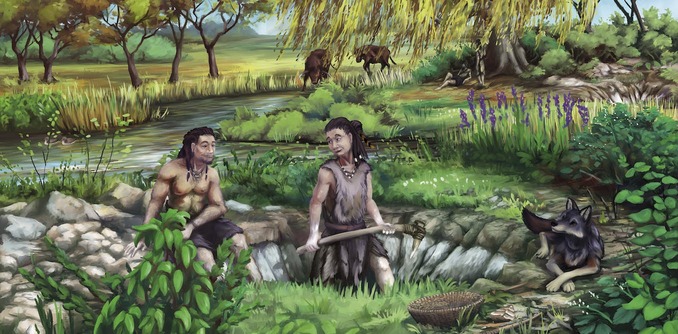cross-posted from: https://feddit.uk/post/789199
In Britain, the Mesolithic period (10BC to 4000BC) was the last time people lived exclusively as hunter-fisher-gatherers. The recent discovery and excavation of a series of large Mesolithic pits at Linmere, Bedfordshire, is important for rethinking how historians have previously considered life and society during this period.
Twenty-five monumental pits, up to 5m wide and 1.85m deep, have been identified in a series of linear alignments, probably extending beyond the excavated area. Radiocarbon dating on associated bones, including deer, marten and auroch (massive, extinct wild cattle), indicate that these pits were dug 8,500 years ago. Their purpose is unclear, but they show signs of having been re-excavated, perhaps over many centuries. This suggests that they were of considerable continued importance.
Mesolithic archaeology in Britain has, historically, largely been understood through finds of stone tools. These finds have the context of massive environmental change over 6,000 years – from final deglaciation, to reforestation and separation from the continent due to rising sea levels, all in the wake of the last ice age.


